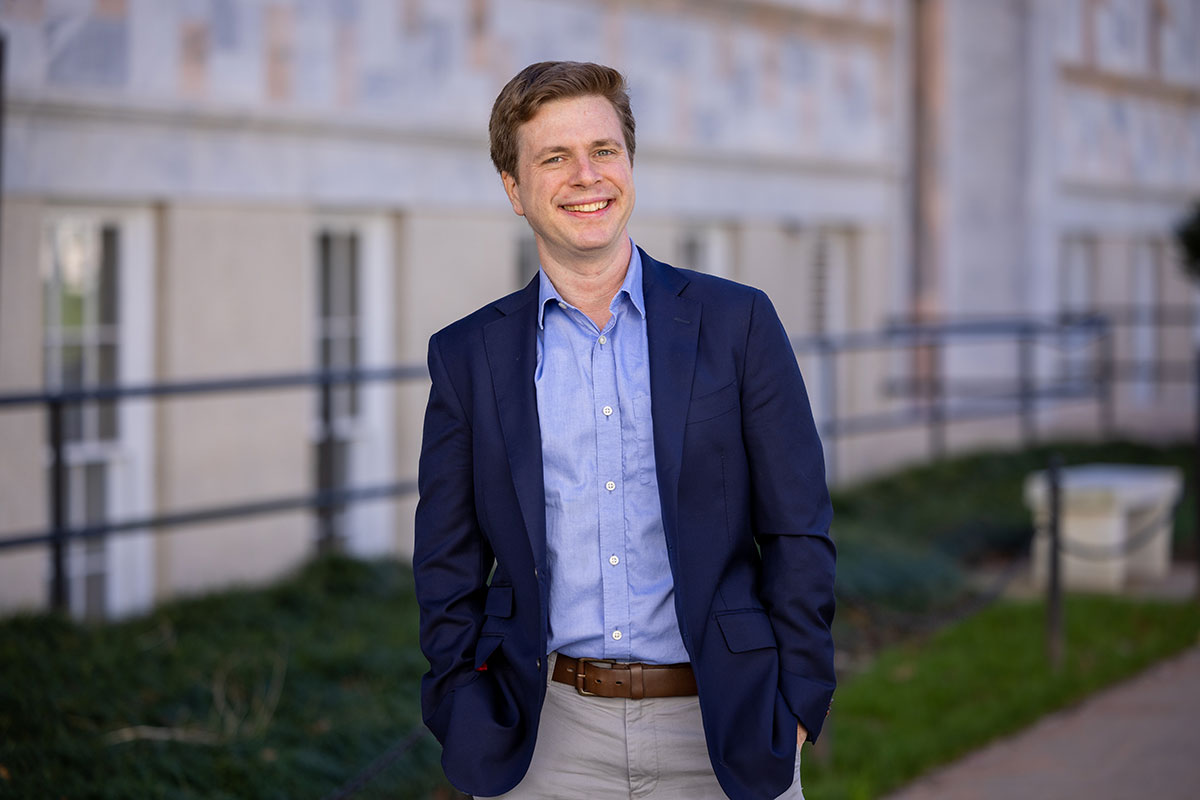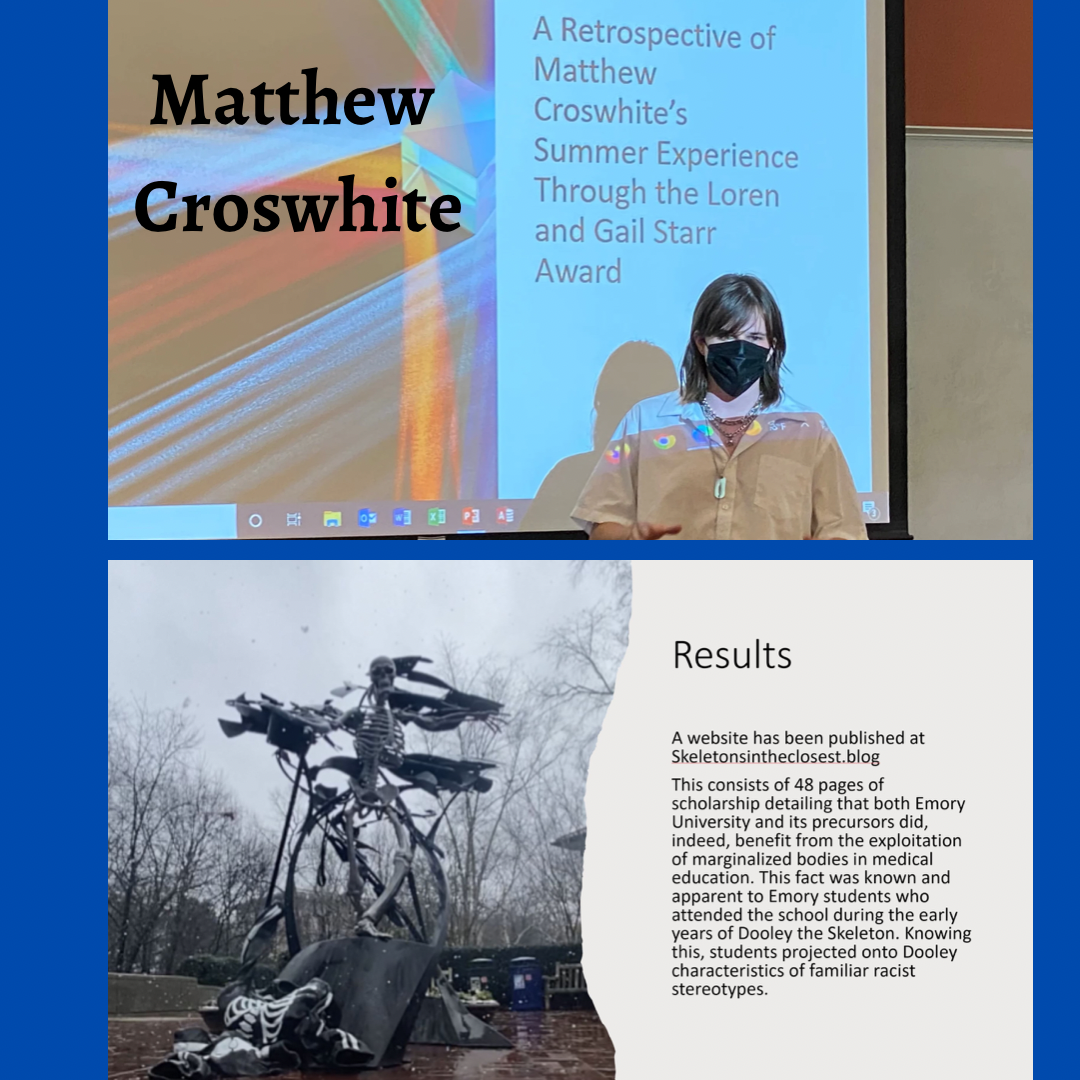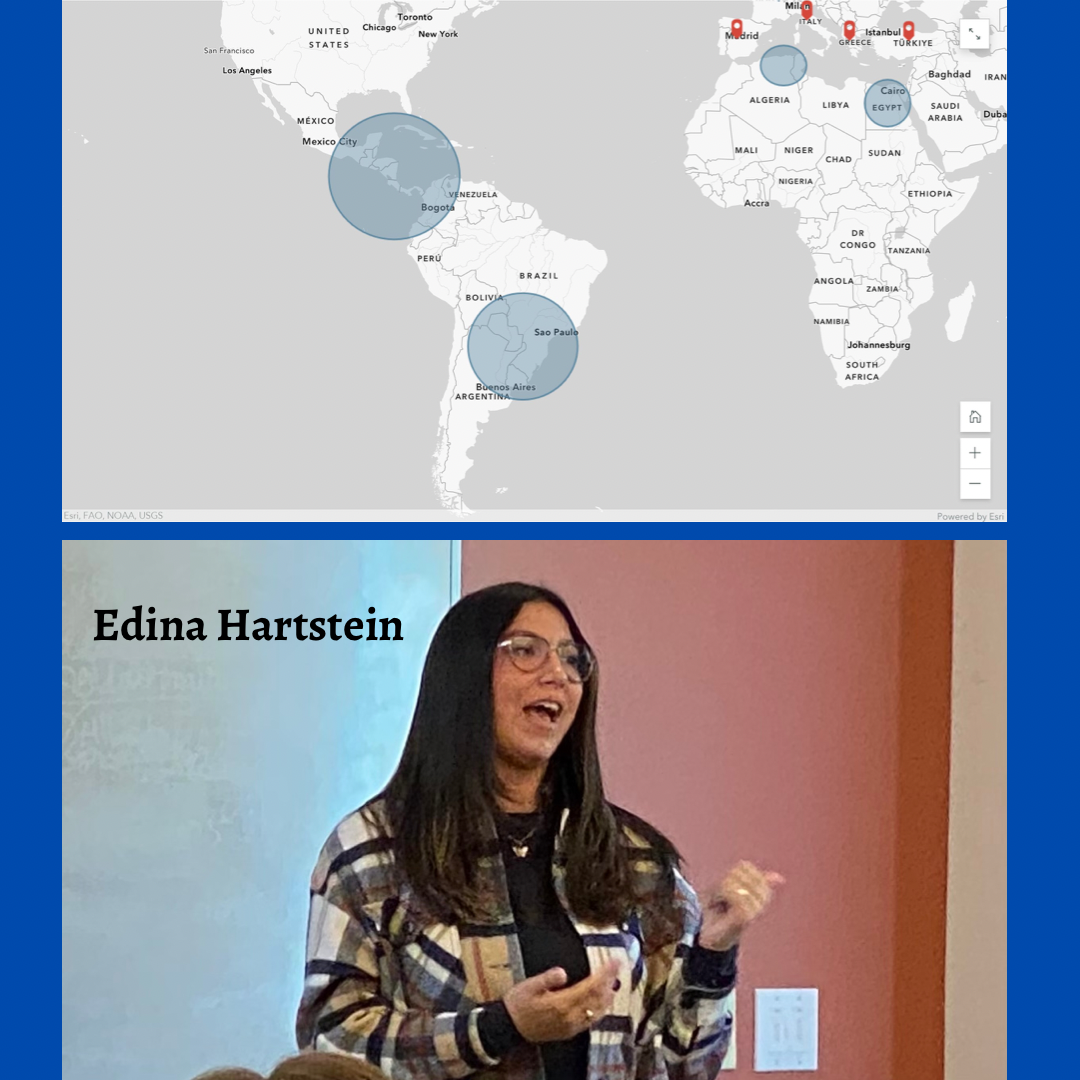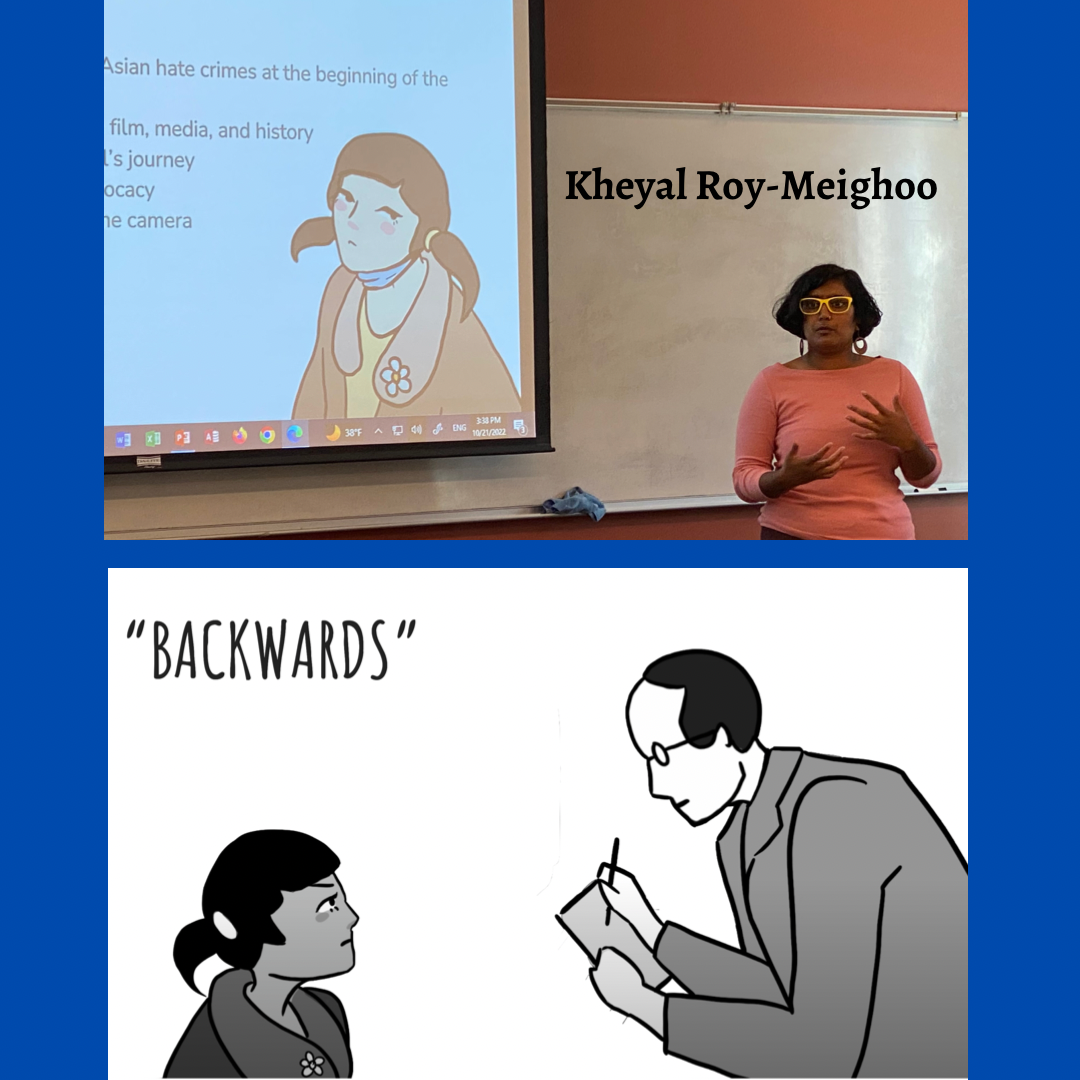Dr. Deborah E. Lipstadt, Dorot Professor of Modern Jewish History and Holocaust Studies and the U.S. State Department’s special envoy to fight antisemitism, recently discussed her work and global antisemitism as part of Emory’s Office of Diversity, Equity, and Inclusion’s Thought Leader Series. Ambassador Lipstadt was interviewed by Dr. Carol E. Henderson, Vice Provost for Diversity and Inclusion. The Thought Leader Series identifies opportunities to engage in conversation with some of the foremost thinkers at Emory and more broadly across the world who can provide educational awareness around topics and issues that create barriers to experiencing a more inclusive Emory, and a more humane and just society. Lipstadt is Associated Faculty in the History Department. Watch the full conversation above or on YouTube at: “Thought Leader Series | Antisemitism: A Conversation w Dr. Deborah Lipstadt & Dr. Carol E. Henderson.”
Author / abritt
TIJS Highlights Recent PhD Graduate Anastasiia Strakhova
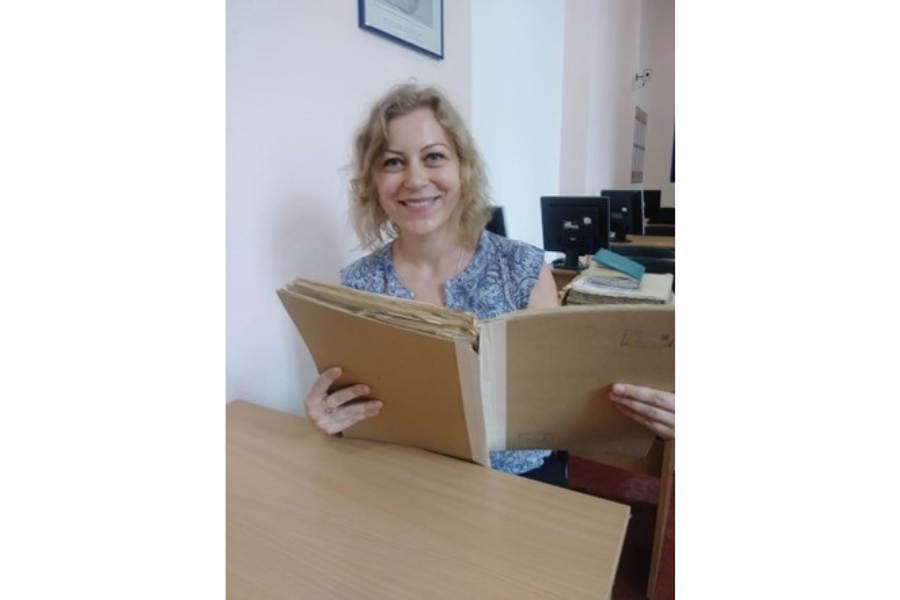
Emory’s Tam Institute for Jewish Studies (TIJS) published a feature story on recent doctoral graduate student Anastasiia Strakhova, whose work TJIS supported throughout her graduate career. Strakhova completed her dissertation, titled “Selective Emigration: Border Control and the Jewish Escape in Late Imperial Russia, 1881-1914,” in 2022 under the advisement of Dr. Eric Goldstein and Dr. Ellie R. Schainker. This spring Strakhova is a Postdoctoral Fellow in the Center for Jewish Studies at Duke University. Read an excerpt from the TJIS feature below, along with the full article: “Recent TJIS Graduate Highlight: Anastasiia Strakhova.”
“My research interest evolved gradually,” Dr. Anastasiia Strakhova explains when asked about her scholarly development. After getting her BA in her home city of Kharkiv, Ukraine, and then her MA from the Central European University in Budapest, Hungary, Dr. Strakhova traveled to the United States to continue her education. While studying Yiddish in New York, Dr. Strakhova found her curiosity about Jewish migration. “I was so fascinated about the attachment that Jews felt to the United States, and the romanticization of the old country… And then I got very interested in seeing the archives and reading about the way that people were living [at that time in history].” Dr. Strakhova’s dissertation addresses late Imperial Russian migration policies through the prism of racialization and criminalization of Jews.
Jessica Reuther (PhD, ’16) Publishes Article in the ‘Journal of African History’
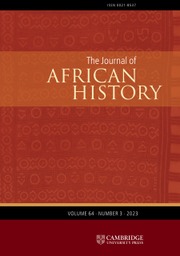
Dr. Jessica Reuther, a 2016 graduate of the African history program, has published an article in the Journal of African History. Titled “Street Hawking or Street Walking in Dahomey?: Debates about Girls’ Sexual Assaults in Colonial Tribunals, 1924–41,” Reuther’s piece centers on sexual assault investigations in colonial Dahomey. Reuther’s analysis of those investigations reveals caregiving practices among older women for girls who suffered sexual assaults as well as the vulnerability of street hawkers to such assaults. Reuther is Assistant Professor of African History at Ball State University. Read the article abstract below.
Between the judicial reorganizations of 1924 and 1941, the colonial tribunals in Dahomey heard more than two hundred cases of rape. Teenage or younger girls engaged in street hawking were the most common victims of rape who reported their assaults to these tribunals. Many of the cases stand out because market women played the dominant role in transforming girl hawkers’ experiences of sexual assault into formal grievances. The history of sexual assault in colonial Africa has largely focused on how ‘customary’ and colonial courts have or have not punished the crime of rape. This approach privileges masculine authorities’ views of sex, consent, and gender violence. This article focuses on the investigative processes in cases of sexual assault. In doing so, two gendered histories emerge: firstly, a history of elder female caregiving to girls suffering the aftereffects of sexual assaults and, secondly, a history of the vulnerability of hawkers to quotidian sexual violence.
Doctoral Student Anjuli Webster to Present at Brown U. Workshop “Rivers on the Move”

History doctoral student Anjuli Webster was recently accepted to an international workshop at Brown University in June of 2023. Titled “Rivers on the Move,” the event will bring together environmental historians, hydrologists, and other historically-minded humanists and natural scientists to understand better how past and contemporary riparian change relate to social and political shifts, from economic development to legal frameworks. The workshop will result in an edited volume of interdisciplinary essays that aim to appeal to a wide range of riverine scholars and students. “Rivers on the Move” is organized by Bathsheba Demuth, Mark Healey, Giacomo Parrinello, and Larry Smith, with support from the Institute at Brown for Environment and Society, in collaboration with the project Shifting Shores, funded by an Emergence(s) grant of the City of Paris. Webster is currently conducting fieldwork for her dissertation, titled “Fluid Empires: Histories of Environment and Sovereignty in southern Africa, 1750-1900.”
Chira Wins Article Prize from the Berkshire Conference of Women Historians

Dr. Adriana Chira, Assistant Professor of History, was recently awarded an article prize from the Berkshire Conference of Women Historians. The prize recognizes Chira’s 2021 article in The American Historical Review, titled “Freedom with Local Bonds: Custom and Manumission in the Age of Emancipation.” The annual award goes to the best article in any field by a woman scholar. The prize committee praised the article’s “creativity in scholarship and expression” and “found Chira’s work to be innovative in its approach and exploration of those seeking manumission from slavery.” The report continued: “Considering social networks as a ‘resource’ in the manumission process offers a new facet for understanding this matrix. Chira also considers the grey area between enslaved and free, building on scholarship considering the nature of identity and freedom among enslaved peoples.” Read the abstract from the article below.
“Throughout the first half of the nineteenth century, across Latin America, expansive rural communities of African descent forged freedom from below in the shadows of highly exploitative extractive economies. Their efforts push us to reconsider established genealogies of the age of emancipation. Freedom through conditional manumission and enslaved people’s reliance on social networks to obtain it opened the door to custom inside first-instance district courts in such areas. Judges turned to vernacular understandings of rights and obligations as they clarified the ambiguous statuses of the conditionally freed for which written law offered few provisions. Through manumission and legal actions to defend freedom, peasants of African descent on the margins of the global economic system grounded their rights in state structures as local custom. Black freedom within such territories represents a mode of community governance that remains invisible if studied by focusing on mobility or nation building. Seen from a place such as Santiago de Cuba, the nineteenth century was not just a time when Africans and Afro-descendants pursued social inclusion through ideologies of national citizenship and diasporic connections. It was also a time of freedom through membership in local communities, which women and families were especially instrumental in forging.“
New Books Series: Q&A with Mariana P. Candido about ‘Wealth, Land, and Property in Angola’

Mariana P. Candido, Associate Professor of History, published Wealth, Land, and Property in Angola: A History of Dispossession, Slavery, and Inequality with Cambridge UP in September of 2022. Below, Dr. Candido gives us a glimpse into the making of this, her third single-authored monograph, as part of the History Department’s New Faculty Publications series.
Books are produced over years if not decades. Give us a sense for the lifespan of this book, from initial idea to final edits.
My latest book, Wealth, Land, and Property in Angola, started to take shape in 2017-2018. Thanks to an American Council of Learned Society (ACLS) fellowship in 2017-2018, I was able to spend one year reading, thinking, and writing. Until the fellowship, I was convinced I was writing a book about women in Angola based on documents I had transcribed years earlier. It was during the process of writing and reading other books and articles that I realized my book was not about women, but it was about processes of wealth accumulation in Angola from the 17th to the 19th century. In many ways, writing helped me to refine and reorganize my ideas. It made it clear that I could only understand women’s economic role in Angola if I figured out how men and women conceived of wealth and poverty. I was lucky I was able to return to archives in Angola and Portugal after I started writing my book manuscript. After months of writing, it was important to return to the archives during the 2018 summer. Doing so helped me to fill out gaps and add new information about local notions of land tenure. In many ways, Wealth, Land, and Property in Angola became a very different book from the one I had imagined I would write before the fellowship.
But there is a long history between drafting a manuscript and getting a book published. English is my third language, so, generous friends and professional copy editors helped me to polish my text. External readers and colleagues offered crucial feedback, helping me to rethink and clarify key points in my argument. Librarians and archivists help me secure copyright for illustrations and access to crucial resources. In so many ways, the publication of a book involves many people beyond the author.
Writing a book takes a long time and, when the writing is done, there is the production phase, which can also consume lots of time and energy. In the case of Wealth, Land, and Property in Angola, the production ran parallel to teaching, other commitments I had already assumed, and life events. I joined Emory in 2020, so when I arrived here, I was revising and reorganizing chapters while moving into a new place, adjusting to a new academic environment, preparing new courses, and settling into a new city during a global pandemic. In many ways, the final steps of my book took place while we were trying to understand how to survive COVID-19. Finally, my book entered production in 2021, when we were still dealing with travel restrictions, a virus spreading around the world, and supply chain challenges.
What was the research process like?
The research process involved visiting different archives and libraries in Angola, Portugal, and Brazil. I combined written documents scattered in different countries and locations to avoid relying only on colonial or administrative reports. I had access to a rich collection of judicial cases held at a storage room at the Tribunal da Comarca de Benguela, or the Benguela Court House, which contains many legal proceedings dating back to 1850. I complemented these records with earlier legal summaries available at the Angola National Archive, in Luanda, and in Portuguese archives. In these documents we can get lots of information about local people, who were often not able to produce written documents, but who appear as witnesses, litigants, or petitioners, nonetheless. These are wonderful documents for social historians.
I also tapped into a seventeenth and eighteenth century collection of documents related to Angola available at the Instituto Histórico e Geográfico Brasileiro in Rio de Janeiro, Brazil. I also consulted records created by West Central African rulers, which are scattered in archives in Angola and Portugal. And to get more information on non-elite actors, such as poor women and enslaved individuals, I created a database of baptism, marriage, and burial records available at the Bispado de Luanda and the Nossa Senhora do Populo Church, in Benguela. This allowed me to include more historical actors in my narrative. In many ways, my research was Atlantic in nature and involved a wide array of types of historical records. It was long, involving several trips to Angola and Portugal, where I spent months in dusty archives reading documents from the seventeenth, eighteenth and nineteenth centuries.
Are you partial to a particular chapter or section?
This is such a difficult question! I have enjoyed researching and writing each one of the chapters. While in Chapter 1 I examine local West Central African conceptions of land access, use, and occupation, I focus on the transformations of property rights during the nineteenth century. It was such exciting research to piece together different mechanisms that West Central Africans used to claim and exercise rights over land for over two hundred years. In Chapter 3, I focus on individuals embracing written records to protect their interests. I looked at land registries, deeds, and legal cases to understand how men and women made use of multiple strategies to protect and pursue rights. In Chapter 4 and 5, I move away from clashes over land to focus on disputes over people. So, I analyzed wills, passports, licenses, fugitive adds, and public complaints to interrogate similarities and differences between ownership claims over people and land. While in Chapter 4, I focus exclusively on enslaved individuals, my attention is directed to freed individuals in Chapter 5 – and the limitations of their emancipation.
Chapter 6 was the first chapter I wrote, and it is quite strange that it ended up being one of the last ones in the book. In this chapter, I selected several cases of African women who went to the colonial court claiming ownership rights over land. Their success in securing land, however, represented dispossession of local rulers and their subjects. While some African women were able to secure private ownership of land, several populations were forced to relocate from the territories they had occupied for generations. Skillful women generated written records that supported their claim, while local chiefs relied on evidence not recognized by the colonial court as legitimate. The last chapter examines how elites and commoners expressed wealth in the accumulation of goods. It is about West Central Africans as consumers of products produced elsewhere, such as Dutch biscuits, Chinese porcelain, sugar cane alcohol produced in Brazil, and textiles made in India or England. I examined how women and men’s consumption patterns differed and changed over time. It is a book about violence, slavery, dispossession, and the imposition of new ideals that continue to affect people who live in Angola. It is an effort to understand the roots of inequality in Angola in the twentieth-first century.
How does this project align with your broad research agenda?
I have been researching and studying the history of Angola for over 20 years. In my first book, Fronteras de Esclavización: Esclavitud, Comercio e Identidad en Benguela, 1780-1850 (2011), initially published in Spanish and later translated into Portuguese, I wrote about the demographic impact of the slave trade in Angola. I have examined processes of enslavement to understand how, when, and why people were seized and enslaved. This is important because I work on the region of Africa that has lost the largest number of enslaved individuals to the transatlantic slave trade. Of the top 5 slaving ports on the coast of Africa, three of them were in West Central Africa. This means that to understand the African diaspora, we need to comprehend the background of the people who were enslaved and deported from West Central Africa. In my second book, An African Slaving Port and the Atlantic World: Benguela and its Hinterland (2013), I focused on the region of Benguela from the early 17th to the mid-19th century, trying to reconstruct the history of this region. I focused on the history of local states and their interactions with Portuguese traders. It was an attempt to bring attention to a town, Benguela, that had not received much attention from scholars until then. So, I decided to write a book about the town, its inhabitants and its connections to the Atlantic world and the interior of the African continent. So, this third book, Wealth, Land and Property in Angola: A History of Dispossession, Slavery and Inequality, is a continuation of my commitment to study the history of Angola and its global importance. This is a place that has never been isolated from the rest of the world – and I try to show this in my work.
In the process of researching and writing Wealth, Land, and Property in Angola, I came across new primary sources and questions. Now, that this book is published, I am interested in going back to my initial goal of writing a book about women in West Central Africa, 1500s-1800s. In many ways, this new book will help other scholars understand the contributions of West Central African women. I am also interested in combining Atlantic and Mediterranean histories, by focusing on the case of a single individual in a subsequent book project. This project will take me out of Angola history, since it focuses on a slave trader who became a captive in the Regency of Algiers in the late eighteenth century. It is a book that combines Atlantic and Mediterranean histories. But I need to do more archival research for both projects.
Besides these monographs, I am also in the last stages of a catalog of over 2,000 legal cases available at the Tribunal da Comarca de Benguela, in Angola. In collaboration with Dr. Mariana Dias Paes of the Max Planck Institute for Legal History, Frankfurt, and Juelma Matos at the Universidade Katyavala Bwila, Benguela, we have identified the historical legal documents available at the Court House storage room. We also wrote an introductory essay on the history of the courthouse and law in Angola, which will be the first publication about the subject in Angolan history. The global pandemic has delayed the conclusion of this project due to the challenges to finalize the revisions of some catalog entries. This catalog will soon be published by the Max Planck Institute and the Universidade Katyavala Bwila.
So, my interest in history of Angola is not over and, I am sure, will lead to new books, articles and edited collections.
K. N. Sunandan (PhD, ’12) Publishes ‘Caste, Knowledge, and Power’ with Cambridge UP
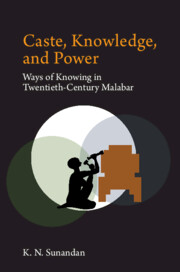
Dr. K. N. Sunandan, a 2012 graduate of the History doctoral program, has published a monograph with Cambridge UP. Titled Caste, Knowledge, and Power: Ways of Knowing in Twentieth Century Malabart, the book investigates how knowledge has contributed to the transformation of caste practices over the course of twentieth-century India. Sundandan teaches at Azim Premji University in Bangalore, India. Read the full description of his new book below.
Caste, Knowledge, and Power investigates the transformations of caste practices in twentieth century India and the role of knowledge in this transformation and in the continuing of these oppressive practices. The author situates the domination and subordination in the domain of knowledge production in India not just in the emergence of colonial modernity but in the formation of colonial–Brahminical modernity. It engages less with the marginalization of the oppressed castes in the modern institutions of knowledge production which has already been discussed widely in the scholarship. Rather, the author focuses on how the modern colonial–Brahminical concept of knowledge invalidated many other forms of knowing practices and how historically caste domination transformed from the claims of superiority in acharam (ritual hierarchy) to the claims of superiority in possession of knowledge.
Graduate Student Stephanie N. Bryan Publishes Piece on Opossums and Jim Crow Politics in ‘Southern Spaces’
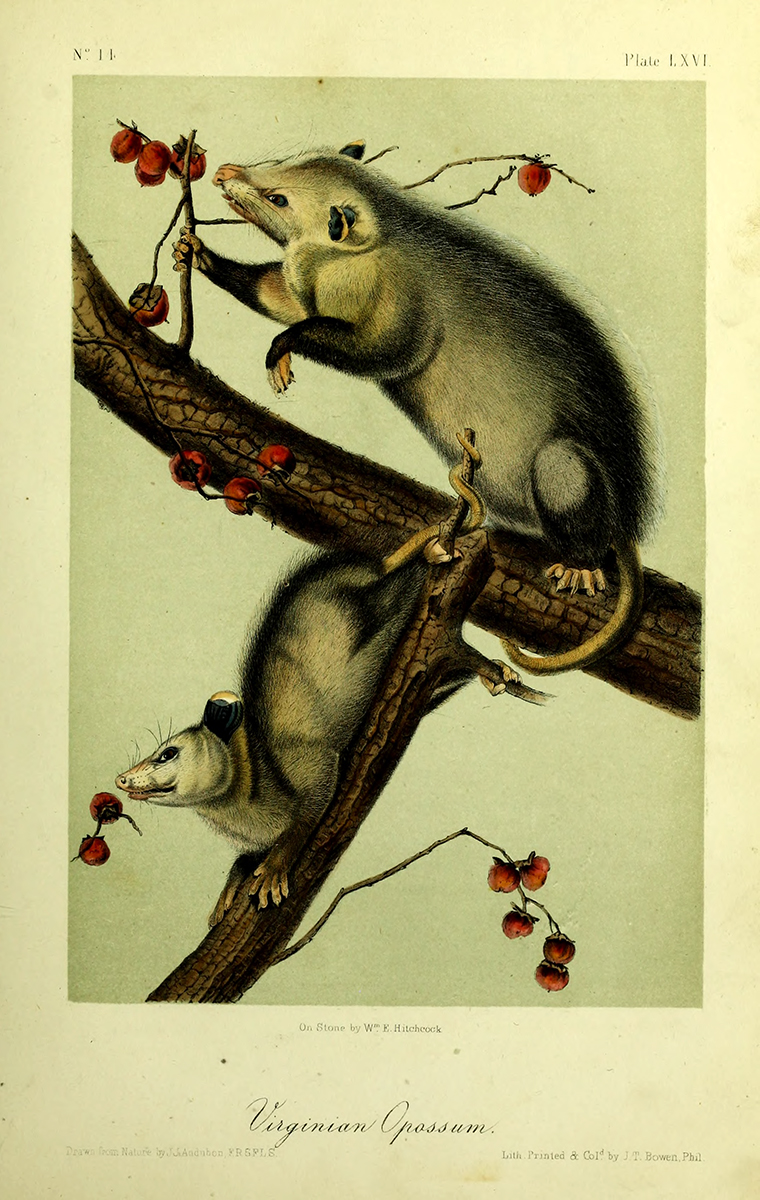
Doctoral student Stephanie N. Bryan recently published an article in Southern Spaces. Titled “‘The Emblem of North American Fraternity’: Opossums and Jim Crow Politics,” the piece examines the cultural meanings behind opossum hunting and consumption during Jim Crow apartheid among freed people of African descent and whites throughout the South. An editorial associate for Southern Spaces, Bryan is producing a dissertation on the ways in which marginalized plant and animal species indigenous to the southeastern US—such as opossums, persimmons, muscadines, and pokeweed—survived and sometimes thrived amid destructive land use and entered into diets, cultures, economies, and politics. Drs. Allen Tullos and Patrick Allitt serve as Bryan’s dissertation advisers. An earlier version of Bryan’s Southern Spaces article was a highly-recommended piece by the committee that grants the Sophie Coe Prize, which is the longest-running and most generous prize for writing in food history in the English language, given once a year for an essay or article of up to 10,000 words on any aspect of the history of food.
LaChance Cited in Article on Last Meal Rite
Dr. Daniel LaChance, Winship Distinguished Research Professor in History, 2020-23, and Associate Professor of History, was recently quoted in a Fox News article about the common practice of allowing people sentenced to death a customized meal before their execution. LaChance argues that this tradition serves to differentiate the violence that the state carries out in the context of an execution from the violence for which the person was sentenced to death. LaChance is the author of Executing Freedom: The Cultural Life of Capital Punishment in the United States (University of Chicago Press, 2016) and Crimesploitation: Crime, Punishment, and Pleasure on Reality Television (Stanford UP, 2022), co-authored with Paul Kaplan. Read an excerpt from the Fox News piece below along with the full article: “Lore of the last meal: Inside the captivating culinary ritual before vicious killers face death.”
“‘The meals serve as a reminder that this is a different violence,’ LaChance told Fox News Digital of the views that some may hold. ‘That this is a righteous violence rather than a lawless or criminal violence.‘”
2022 Loren & Gail Starr Fellows in Experiential Learning Present Results
The 2022 Loren & Gail Starr Fellows in Experiential Learning recently presented the projects for which they received funding over the summer. These fellowships were created in 2022 through a generous donation from Loren and Gail Starr. They provide summer funding from $500 to $3000 for experiential learning projects proposed by History majors, joint majors, or minors. The Starr Award aims to support students who wish to use the knowledge and skills they have acquired in history courses to create or participate in projects outside of the classroom. Bold, creative, and off-the-beaten path proposals are encouraged. The 2022 Fellows outdid themselves with creative historical projects. Learn more about the inspiring work they recently shared with History Dept. faculty, students, and staff below:
Junior major Matthew Croswhite created a website that connects Emory’s mascot, Dooley, to the 19th-century trade in cadavers. Check out his amazing website here: Skeletons in the Closet: Emory University’s Position in the Illicit Cadaver Trade and the Birth of Dooley, The Skeleton from 1840-1930.
Senior Honors student Edina Hartstein created a StoryMap based on her Honors Thesis on “The Advisory Committee on Traffic in Women & Children.” Take a look here: https://storymaps.arcgis.com/stories/a5276b4b745b41d49f9f1a8b9d5fce4f.
Senior Film Studies Honors student and History Major Kheyal Roy-Meighoo created a spectacular animated film on Asian American History that explored the dynamics of racism in the present and past. We look forward to posting an update with a link to the film in the future.
